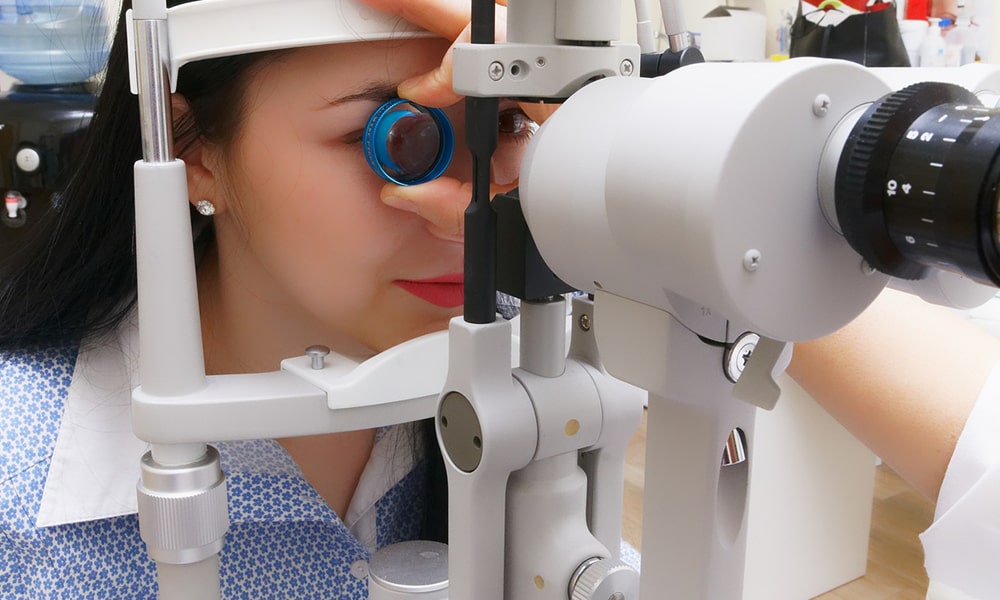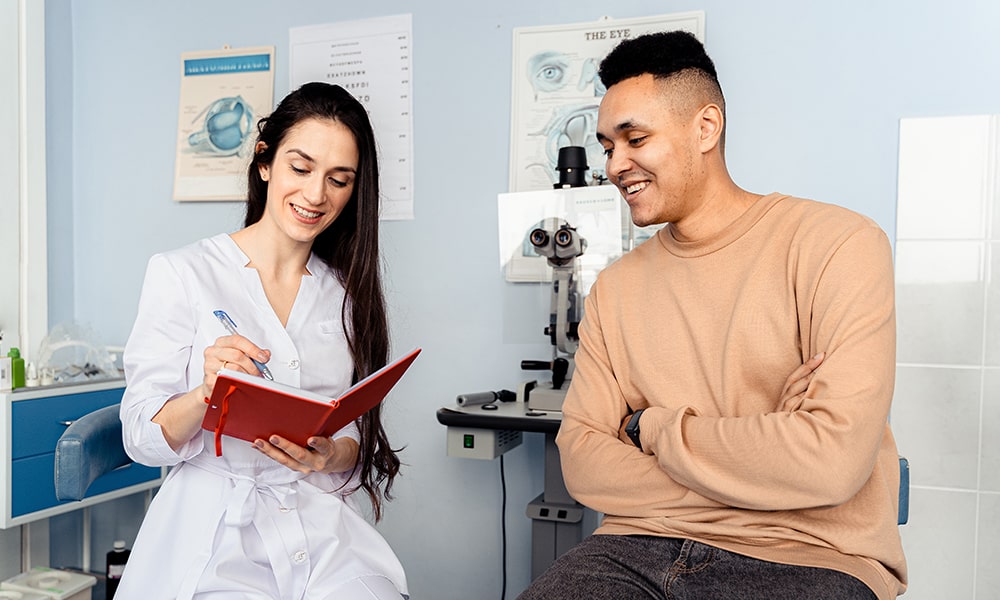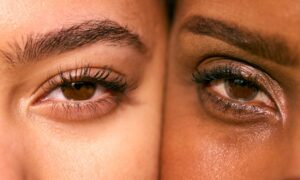Macular degeneration, commonly referred to as age-related macular degeneration (AMD), is a progressive eye disease affecting the central part of the retina known as the macula. It remains one of the leading causes of vision loss among the elderly in the UK. However, when it comes to classifying it as a disability, there are many aspects to consider.

Macular degeneration – the basics
The macula is responsible for our central vision and plays a crucial role in our ability to read, drive, and recognise faces. AMD can manifest in two forms:
- Dry AMD: Characterized by the gradual thinning of the macula, it’s the more common of the two types. Over time, yellowish deposits, called drusen, accumulate under the retina, leading to a slow deterioration of vision.
- Wet AMD: This form is less common but more severe. It involves the growth of abnormal blood vessels beneath the retina, which can leak fluid and blood. Wet AMD can lead to a rapid and severe loss of central vision.
The legal definition of disability
The Equality Act 2010 provides the legal framework surrounding disabilities. According to the Act, a person is considered to have a disability if they have a physical or mental impairment that has a ‘substantial’ and ‘long-term’ negative effect on their ability to perform normal daily activities.
- Substantial: This is defined as more than minor or trivial.
- Long-term: The impairment must either have lasted or be expected to last for at least 12 months.
Given these parameters, many people with advanced macular degeneration, especially those with significant vision loss, would meet the definition of having a disability.
The implications of AMD as a disability
Classifying AMD as a disability is essential for several reasons:
- Workplace accommodations: Employers in the UK are legally required to make reasonable adjustments for employees with disabilities. This could include providing magnifying equipment or software that enlarges text.
- Benefit entitlements: Depending on the severity of vision loss, individuals with AMD might qualify for certain benefits, including the Personal Independence Payment (PIP).
- Access to support: Recognising AMD as a disability allows those affected to access various support services, such as rehabilitation or mobility training.
Prevention and management
While the exact cause of AMD remains unknown, several factors are known to increase the risk, including age, genetics, alcohol, smoking, and prolonged UV exposure. Early detection and proactive management can slow down the disease’s progression.
- Regular eye check-ups: It’s crucial to have regular eye examinations, especially if there’s a family history of AMD or if you’re over 50.
- Lifestyle modifications: Adopting a balanced diet rich in green leafy vegetables, fish, and nuts can potentially slow AMD’s progression. Furthermore, quitting smoking and protecting the eyes from UV rays are also advisable.
- Supplementation: Products like AREDS 2 Vitamins for Eyes can play a supportive role in a holistic approach to eye health, especially when used alongside other preventive measures.

The wider societal impact of macular degeneration
Macular degeneration, beyond its direct effect on sufferers, has a more extensive ripple effect on society at large.
The strain on the healthcare system
As the population ages, the incidence of AMD is expected to rise. This will inevitably place an increased burden on the NHS and other healthcare providers. With more patients requiring treatment and ongoing management, there is a significant cost implication, both in terms of actual financial expenditure and the time and resources of healthcare professionals.
The role of family and caregivers
Family members often become the primary caregivers for individuals with advanced AMD, particularly when vision loss is severe. This role, while vital, can place a considerable emotional and sometimes financial strain on families. There are also potential implications for the mental health and well-being of caregivers, who may feel overwhelmed or isolated.
The economic implications
From an economic perspective, AMD can lead to early retirement or reduced work capacity, impacting both the individual’s income and the broader economy. The cost of treatments, regular check-ups, and adaptations to homes or workplaces to accommodate vision loss can add up.

Addressing the challenges: A holistic approach
Given these implications, a multi-faceted approach to addressing AMD’s challenges becomes crucial. This includes:
- Public awareness campaigns: There’s a need for greater public understanding of AMD. Raising awareness about its risk factors, the importance of regular eye screenings, and available treatments can lead to earlier diagnosis and potentially better outcomes.
- Support networks: Establishing and promoting support groups can offer emotional and practical assistance to those with AMD and their families. These networks can also share valuable resources and coping strategies.
- Research and innovation: Continuous investment in research can pave the way for more effective treatments or even a cure for AMD in the future. Embracing technological advancements, such as vision aids or software adaptations, can also make daily life more manageable for those with vision loss.
- Nutritional and lifestyle education: As part of a broader preventive strategy, public health initiatives should promote the benefits of a healthy lifestyle on eye health. This encompasses not just the potential eye health benefits of products like Eyesight Plus AREDS 2 Vitamins for Eyes, but also the advantages of a balanced diet, regular exercise, and avoiding smoking.
Macular degeneration needs to be taken seriously
Understanding macular degeneration solely as an eye disease understates its extensive implications for individuals, families, and society at large. While classifying it as a disability is a significant step in recognising its impact, a comprehensive approach that encompasses prevention, treatment, support, and research is essential to addressing its challenges holistically.
💡 Further reading: Can Central Serous Retinopathy Lead To Macular Degeneration?





